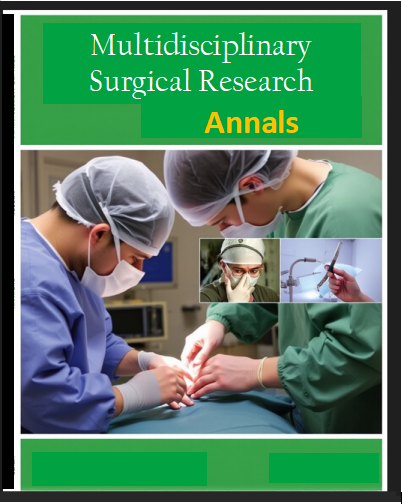Relationship of Age of Infants with the knowledge of Breastfeeding Mothers
Abstract
Aim of the study is to determine the Relationship between the age of infants and the knowledge of Breastfeeding mothers. Knowledge of breastfeeding mothers is a vital part of the infant's life. Infant care depends on the handling of an infant by the mother. Mother’s education prevents the infants from infectious diseases. A secondary survey of the demographics of Pakistan 2013 to 2014 revealed that 1072 children aged 3 years and under were conducted. Multiple logistic regression analysis was applied to test the data. (B Syeda et al., 2021). A secondary analysis of the demographics of Egypt revealed that 41% of infants were exclusively breastfed. 9% of infants had ARI symptoms. The sample size was 1340 infants under the age of. (NH Farrag et al., 2024). The cross-sectional analytical study was conducted to check the correlation in Indonesia between the age of infants and the knowledge of breastfeeding women. A total of 50 mothers were selected for a research study. 76% of women were less knowledgeable. The attitude of women was 54 %. Working mothers comprised 66% of the population, and SMS education women comprised 44%. P-value was <0.02 of the alpha value of 0.05. (Simamata et al., 2024). The method and materials of the study are as follows. This research design is a cross-sectional analytical study on the role of an educated mother in breastfeeding. The setting of the study is a health facility in Karachi (a primary health care center). The duration of the study is 3 months. Mothers of the area of Primary Health care in Karachi who have a breastfeeding child are the population of the study. The size of the study is 160, which included 80 breastfeeding women and 80 non-breastfeeding women. Sampling technique of the study is non probability purposive sampling? Inclusion criteria of the study included Breast feeding mothers who are having 0-2 year old child. Non-breastfeeding mothers who are having 0-2 year old child. Exclusion criteria of the study are that the Mothers are not having breastfeeding child. Mothers are not willing to participate. Structure questionnaire form was used to collect the data for this cross sectional analytical study. Results Infants of caregivers without breastfeeding knowledge are older on average (15.22 months) than those with knowledge (12.50 months). Both distributions are approximately symmetric but slightly skewed in opposite directions. Variance and standard deviation are similar, suggesting comparable spread in ages. Differences might suggest a trend where knowledge about breastfeeding is more common among caregivers of younger children, or perhaps knowledge diminishes over time. Would you like help performing a statistical test (e.g., t-test) to determine if the mean age difference is significant?
Keywords Breast feeding mothers, Non-Breastfeeding mothers, age of infants, breastfeeding child, and Educational status




